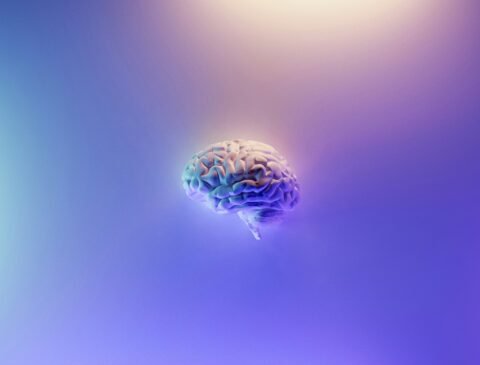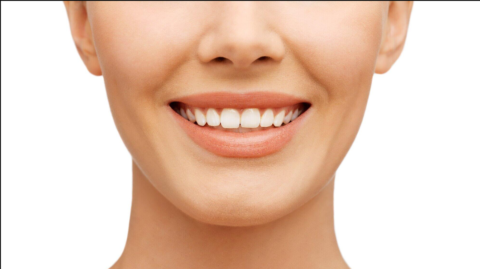Drug addiction is a powerful disease that affects millions of individuals worldwide, leaving them feeling trapped in a cycle of dependency and despair. While traditional rehab methods often focus on physical detoxification and behavioral therapy, they sometimes neglect the deeper emotional, mental, and spiritual aspects of recovery. Holistic drug rehab offers a more comprehensive approach to treatment, addressing not just the symptoms of addiction but also the underlying causes. By healing the mind, body, and spirit together, holistic drug rehab provides individuals with a well-rounded and sustainable pathway to recovery.
What is Holistic Drug Rehab?
Holistic drug rehab is a treatment approach that recognizes the importance of treating the whole person’s mind, body, and spirit rather than simply focusing on the addiction itself. This model of care is based on the understanding that addiction often stems from a combination of physical, emotional, mental, and spiritual factors. Instead of isolating these areas, holistic drug rehab aims to treat them in unison, helping individuals regain balance and harmony in their lives.
While traditional addiction treatment centers typically rely on therapies like medication, cognitive-behavioral therapy (CBT), and group therapy, holistic rehabs incorporate a variety of complementary practices that focus on healing all aspects of an individual’s being. The goal is to help patients address the root causes of their addiction, build resilience, and promote long-term recovery.
The Mind-Body Connection in Addiction Recovery
One of the key principles of holistic drug rehab is the mind-body connection. Addiction doesn’t just affect a person’s behavior; it also impacts their mental health and physical well-being. Over time, drug abuse can cause changes in the brain’s chemistry, leading to mood swings, anxiety, depression, and other emotional disorders. This makes it essential to address both the mind and body during recovery.
In holistic drug rehab, patients engage in various therapies that promote mental clarity, emotional healing, and physical well-being. These therapies may include:
Nutritional Counseling: Proper nutrition is vital for healing the body from the damage caused by drugs and alcohol. A well-balanced diet helps restore vital nutrients that are often depleted in individuals struggling with addiction. Nutritional counseling in holistic rehab programs focuses on foods that promote brain health, improve mood, and increase energy levels, which are crucial for maintaining sobriety.
Physical Exercise: Physical activity is a powerful tool in addiction recovery. Exercise not only helps rebuild physical strength but also releases endorphins, which improve mood and reduce stress. Many holistic rehab centers include yoga, meditation, tai chi, or simple physical fitness routines as part of the recovery process. These practices help individuals reconnect with their bodies, build discipline, and reduce anxiety, which is often a trigger for substance use.
Massage Therapy: Addiction can leave the body tense, fatigued, and emotionally drained. Massage therapy is often incorporated into holistic drug rehab to help patients release physical tension and promote relaxation. It can also improve circulation, enhance sleep quality, and reduce symptoms of anxiety or depression, which are common in early recovery.
Healing the Mind: Therapy and Counseling in Holistic Rehab
The mental and emotional components of addiction are often the most challenging to address. Drug use may begin as a coping mechanism for stress, trauma, depression, or anxiety. Therefore, treating addiction requires addressing these underlying psychological factors. Holistic drug rehab incorporates a range of therapeutic techniques aimed at healing the mind and restoring emotional balance.
Some common therapies used in holistic rehab include:
Cognitive Behavioral Therapy (CBT): While CBT is also commonly used in traditional rehab settings, it is an essential component of holistic drug rehab. CBT helps individuals identify and change negative thought patterns and behaviors that contribute to substance abuse. It also teaches coping skills to manage triggers and stress without turning to drugs or alcohol.
Mindfulness-Based Stress Reduction (MBSR): Mindfulness practices, such as meditation and deep breathing exercises, are incorporated into many holistic rehab programs. These techniques teach individuals to focus on the present moment, which helps reduce anxiety and emotional overwhelm. Mindfulness also helps people develop emotional resilience, making it easier to cope with cravings and stress in recovery.
Trauma-Informed Therapy: Many people turn to drugs or alcohol as a way to numb the pain of past trauma. Whether it’s childhood abuse, neglect, or other traumatic experiences, healing from trauma is an important part of addiction recovery. Holistic drug rehab centers offer trauma-informed therapy that addresses these deep emotional wounds. This may include therapies like EMDR (Eye Movement Desensitization and Reprocessing), which helps individuals process and release trauma-related memories.
Art and Music Therapy: Creative therapies can be incredibly effective in helping people express their emotions and experiences in a non-verbal way. Art therapy, music therapy, and dance/movement therapy allow individuals to tap into their creativity and express feelings that might be difficult to articulate. These therapies provide an outlet for emotional release and are often used in holistic rehab to promote healing and self-discovery.
Healing the Spirit: A Holistic Approach to Inner Peace
The spiritual component of recovery is often overlooked in traditional drug rehab centers, but it plays a vital role in achieving lasting sobriety. Many individuals who struggle with addiction feel a sense of emptiness, disconnection, or lack of purpose. Holistic drug rehab programs help individuals reconnect with their sense of self, find purpose, and restore spiritual balance.
While spiritual practices vary from person to person, holistic rehab centers often incorporate the following practices:
Yoga and Meditation: Yoga and meditation are two of the most popular spiritual practices used in holistic rehab. Yoga helps individuals connect with their bodies while calming the mind. Meditation fosters a sense of inner peace and mindfulness, which can help reduce stress and anxiety. Both practices encourage self-awareness and self-compassion, which are important for maintaining sobriety.
Spiritual Counseling: For many, addiction is closely tied to a sense of spiritual emptiness. Holistic drug rehab programs often offer spiritual counseling to help individuals explore their beliefs, values, and sense of purpose. Whether through religious or secular counseling, this spiritual guidance helps individuals find meaning in their lives and work toward healing on a deeper level.
Support Groups and Peer Connections: Support groups, such as 12-step programs or other peer-based support systems, are often integrated into holistic rehab. These groups provide individuals with the opportunity to connect with others who share similar experiences, offer mutual support, and work together toward recovery. Building a community of like-minded individuals can help foster a sense of belonging and reduce feelings of isolation.
Why Holistic Drug Rehab is Effective for Long-Term Recovery
One of the most significant advantages of holistic drug rehab is its focus on treating the root causes of addiction. Instead of simply addressing the physical symptoms, holistic rehab helps individuals understand why they turned to drugs in the first place. By addressing emotional trauma, mental health issues, and spiritual disconnection, holistic treatment programs help individuals create a solid foundation for long-term recovery.
Another key benefit of holistic drug rehab is its emphasis on individualized treatment. Every person’s journey to recovery is different, and a one-size-fits-all approach often falls short. Holistic rehab centers tailor their programs to meet each individual’s specific needs, preferences, and healing goals. This personalized care increases the chances of success and helps people build healthier, more fulfilling lives after rehab.
Finally, holistic drug rehab focuses on prevention and relapse prevention. By teaching healthy coping mechanisms, stress management techniques, and mindfulness practices, individuals are better equipped to handle the challenges of everyday life without resorting to substance use.
Conclusion
Holistic drug rehab offers a powerful, comprehensive approach to addiction recovery that addresses the mind, body, and spirit. By treating the whole person rather than just the addiction, this approach promotes healing on all levels and helps individuals develop the skills and resilience they need to maintain sobriety in the long term. Whether through nutritional support, physical exercise, therapy, or spiritual practices, holistic rehab provides the tools necessary for individuals to reclaim their lives and build a future of lasting recovery.
For those seeking a more balanced, sustainable path to sobriety, holistic drug rehab offers hope and healing that goes beyond the surface. It’s an opportunity to rebuild your life from the inside out and restore harmony between mind, body, and spirit.
Passionate content writer and savvy blog publisher, Aamir crafts compelling stories and insightful articles that captivate and inform. With a knack for blending creativity and strategy, they bring fresh perspectives to every piece. Dive into their world of words and discover content that resonates.





